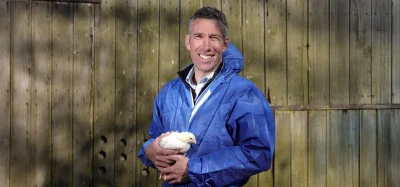Water company working with national food chains to prevent fatbergs
- Like
- Digg
- Del
- Tumblr
- VKontakte
- Buffer
- Love This
- Odnoklassniki
- Meneame
- Blogger
- Amazon
- Yahoo Mail
- Gmail
- AOL
- Newsvine
- HackerNews
- Evernote
- MySpace
- Mail.ru
- Viadeo
- Line
- Comments
- Yummly
- SMS
- Viber
- Telegram
- Subscribe
- Skype
- Facebook Messenger
- Kakao
- LiveJournal
- Yammer
- Edgar
- Fintel
- Mix
- Instapaper
- Copy Link
Posted: 7 December 2017 | George Smith (New Food) | No comments yet
The scourge of sewage workers the world over, a fatbergs are caused by, among other factors, fats, oils and greases poured down drains.


TITANIC PROBLEM: A fatberg is discovered below the streets of Soho
Severn Trent has joined forces with environmental engineering company ECAS and both national and local food chains such as YO! Sushi and J D Wetherspoon to help prevent sewer blockages and fatbergs. The collaboration will help to educate staff about what they shouldn’t be pouring down sinks and drains and installing grease traps at the food chain’s restaurants.
This is part of a drive to minimise blockages in sewers and drains across the Midlands, and to stop them from happening in the first place.
This partnership approach is part of a programme that Severn Trent has in place to tackle fatbergs by preventing them in the first place. The programme has been designed and delivered by contract partners ECAS, who are an environmental engineering company that specialises in designing and implementing FOG management programmes. Over the last four years, it has led to a reduction in the number of pollution, floodings and sewer blockages.
The water company has been helping these food service chains to set up an awareness programme on how to dispose of fats and oils from cooking, and understand the environmental benefits of looking after their pipes and local sewers. Severn Trent is also supporting them with regular maintenance of the sewer pipes near to the restaurants.
Grant Mitchell, community relationship adviser at Severn Trent Water, has been working with these companies directly: “We don’t want to be telling the world about huge fatbergs that we’ve found – we want to be tackling the issue at source, so we’re really pleased that these big national chains, along with local businesses have agreed to work with us on reducing sewer blockages and fatbergs.
“I think everyone now understands the need to reduce the impact that restaurants and pubs have on the environment, so this was something they were really keen to do with us. The response from their staff has been great; they’re so keen to learn about how they can play a key part in reducing sewer blockages and improving their local environment.
“Most blockages are caused by people putting the wrong things down their toilets and sinks, and we normally only know about the blockage when sewage is backing up and spilling out onto the road, so education on preventing the blockage in the first place is key to protecting the environment. By working with companies like YO! Sushi and J D Wetherspoon, who take their environmental responsibility so seriously, together we’ll be able to make a significant difference to the number of blockages which are caused by fats, oils and greases. This in turn will serve as role model behaviour to other companies.”
Mike Bonaker, YO! Sushi said: “We’re pleased to have worked with Severn Trent Water on this project to reduce fatbergs. As a business YO! Sushi are always willing to work with the relevant agencies to ensure the provision of a correctly sized and efficient Grease Removal System. It’s beneficial as it reduces kitchen down times caused by blockages but more importantly it benefits the wider community we serve as we are not dispensing FOG in to the public drainage system”
Eddie Gershon from J D Wetherspoon, said: “Wetherspoon is a responsible pub operator and is keen to work with outside agencies to ensure that its pubs are environmentally friendly. We are proud to have worked in partnership with Severn Trent to trap FOG at source and the positive engagement by Seven Trent Water in providing assistance to all businesses will benefit both our customers and the environment”.
Grant added: “YO! Sushi and J D Wetherspoon may be big companies, but their staff and all of our other customers can put the same principles in to practice at home. It’s easy to assume that the warm grease and fat left over from a meal could be poured down the sink, as long as it’s washed down with a lot of hot soapy water.
“But the reality is that quite quickly the fat and grease will cool and solidify, build up and potentially block a drain or sewer. It’s better to wipe out any greasy pans with a bit of kitchen roll, and then put it in the bin. Large amounts of left over cooking grease should be poured into a pot or jar with a lid, or one of the free fat traps that our customers can request from our website at stwater.co.uk/fattrap.”









